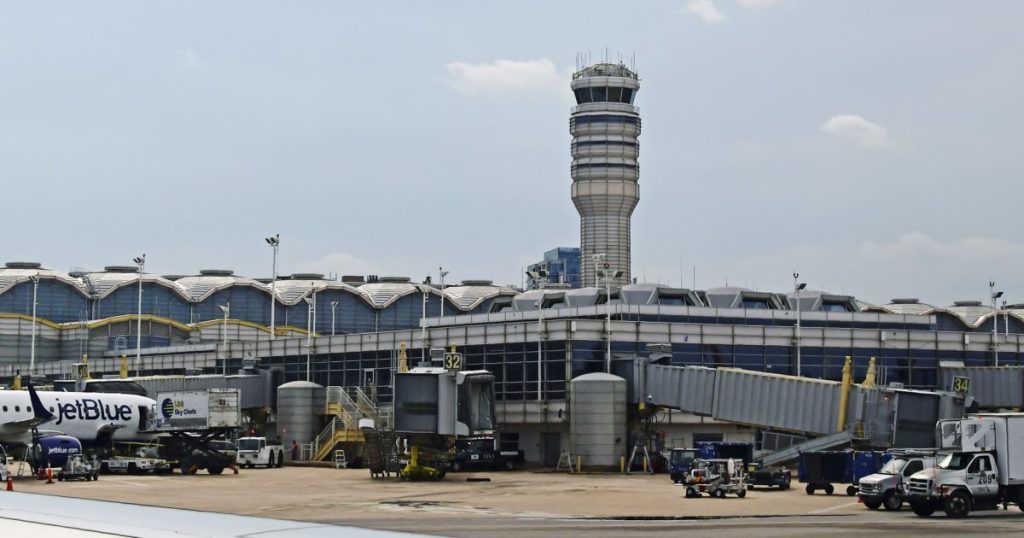A recent incident occurred at Washington, D.C.’s Reagan National Airport involving a near collision between a JetBlue flight and a Southwest Airlines plane. The Southwest Airlines Flight 2937 had been instructed to cross runway No. 4 by air traffic control, while JetBlue Flight 1554 was preparing for takeoff on the same runway. The Federal Aviation Administration is investigating the incident, with calls on radio traffic archived by LiveATC revealing the chaos that ensued as the planes came within 1,000 feet of each other. JetBlue aborted takeoff to avoid the other aircraft and no injuries were reported, with both airlines confirming their commitment to safety and cooperation with authorities.
In the aftermath of the close call, concerns have been raised about the factors that led to the mishap. Analysis by NBC News aviation analyst Jeff Guzzetti suggested that the incident may have been the result of operational errors, with two different airplanes communicating with two different controllers – one ground controller and one tower controller. This raises questions about communication protocols and coordination among air traffic controllers at the airport. The incident at Reagan National Airport is part of a troubling trend of close calls at American airports, highlighting the need for improved safety measures and procedures to prevent potential collisions in the future.
The incident at Reagan National Airport is not an isolated event, with previous close calls occurring at other U.S. airports. In February 2023, a Fedex cargo plane nearly collided with a Southwest passenger plane at Austin-Bergstrom International Airport, possibly due to runway double-booking by an air traffic controller. This incident, along with others, has raised concerns among the public and aviation industry about the effectiveness of current regulatory practices and safety protocols for air travel in the United States. The Federal Aviation Administration hosted a safety summit in March 2023 to address these concerns and assess the need for changes in flight regulations.
Following the safety summit, the FAA committed to achieving a goal of zero serious close calls in the future and reported a 33% decrease in serious runway incursions in fiscal year 2024 compared to the previous year. Despite this improvement, the recent incident at Reagan National Airport serves as a reminder of the ongoing challenges in ensuring the safety of air travel. The cooperation between airlines, air traffic controllers, and federal authorities is crucial in investigating and addressing the root causes of such incidents to prevent future near-collisions and enhance the overall safety of American aviation. It is essential for all stakeholders in the aviation industry to remain vigilant and proactive in identifying and addressing safety risks to prevent accidents and protect passengers and crew members.


